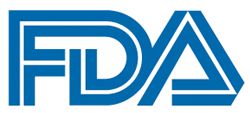Nilotinib Granted FDA Approval for Pediatric CML
Based on data from 2 clinical trials, nilotinib (Tasigna) has been approved by the FDA for the first- and second-line treatment of pediatric patients aged 1 year and older with Philadelphia chromosome–positive chronic myeloid leukemia in the chronic phase.

Based on data from 2 clinical trials, nilotinib (Tasigna) has been approved by the FDA for the first- and second-line treatment of pediatric patients aged 1 year and older with Philadelphia chromosomepositive chronic myeloid leukemia in the chronic phase (Ph+ CML-CP).
The approval was issued based on a cohort of 69 pediatric patients with Ph+ CML-CP who were enrolled across 2 clinical trials and were either newly diagnosed or resistant/intolerant to prior treatment with a tyrosine kinase inhibitor.
The major molecular response (MMR; BCR ABL/ABL ≤0.1% International Scale [IS]) in newly diagnosed patients was 60.0% (95% CI, 38.7-78.9) at 12 cycles, with 15 patients achieving MMR. The cumulative MMR in this group was 64.0% by cycle 12, and the median time to first MMR was 5.6 months (range, 2.7-16.6).
In the resistant/intolerant group, the MMR rate was 40.9% (95% CI, 26.3-56.8) at 12 cycles, with 18 patients being in MMR. The cumulative MMR rate in this group was 47.7% by cycle 12, and the median time to first MMR was 2.8 months (range, 0.0-11.3).
"Novartis' commitment to people living with CML is reinforced by today's FDA approval of Tasigna in children," Liz Barrett, CEO, Novartis Oncology, said in a statement. "This expanded use, along with the other recent global regulatory Tasigna milestones, underscores our dedication to reimagining medicine and addressing the needs for people with CML, including children with this cancer."
The safety profile was similar to that observed in adults, except for laboratory abnormalities of hyperbilirubinemia (grade 3/4: 13%) and transaminase elevation (AST grade 3/4: 1%, ALT grade 3/4: 9%), which occurred more commonly than in adult patients. There was 1 previously treated patient who progressed to advance phase/blast crisis after around 10 months on treatment.
This is the second recent major regulatory development in this patient population in the past 6 months. On November 10, 2017, the FDA approved dasatinib (Sprycel) for the treatment of pediatric patients with Ph+ CML-CP.
The approval was based on results with dasatinib demonstrated in 97 pediatric patients with CP-CML enrolled across 2 studies, an open-label, nonrandomized, single-arm phase II trial (CA180-226; NCT00777036) and an open-label, nonrandomized, dose-ranging phase I trial (CA180-018; NCT00306202). Fifty-one patients (all from the single-arm trial) were newly diagnosed, and the remaining 46 (29 from the single-arm study and 17 from the dose-ranging trial) were intolerant or resistant to prior imatinib.
At a median follow-up of 4.5 years, more than half of the responding patients in the treatment-naïve cohort had not progressed at the time of the data cutoff, and thus, the median duration of complete cytogenetic response (CCyR), major cytogenetic response (MCyR), and MMR could not be estimated. The same was true at the median follow-up time of 5.2 years for the previously treated cohort.